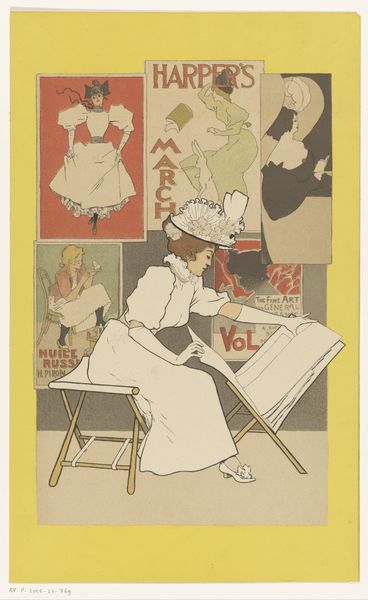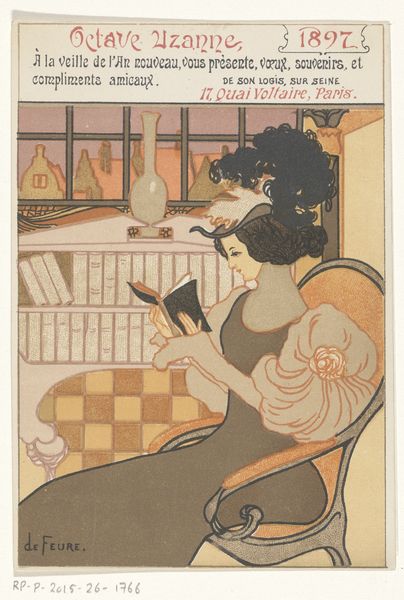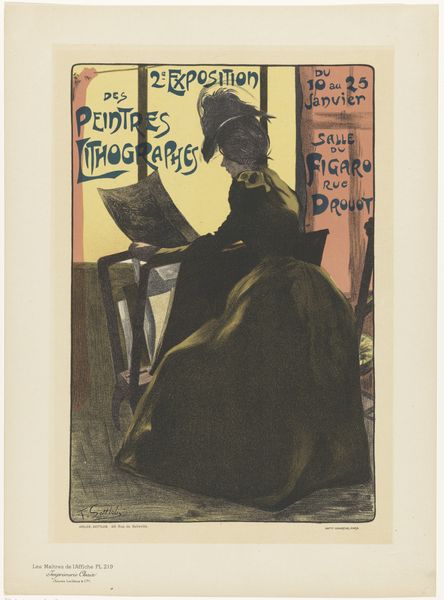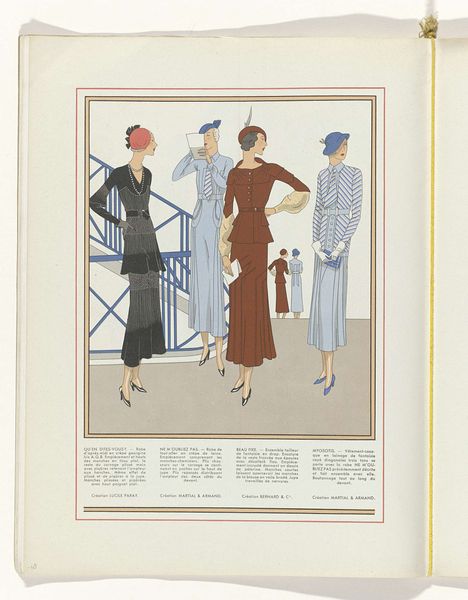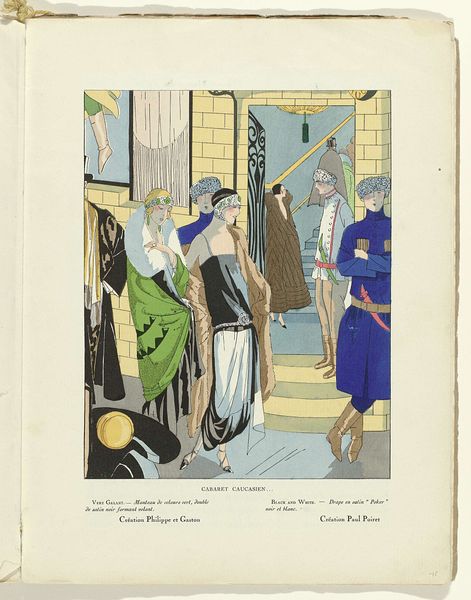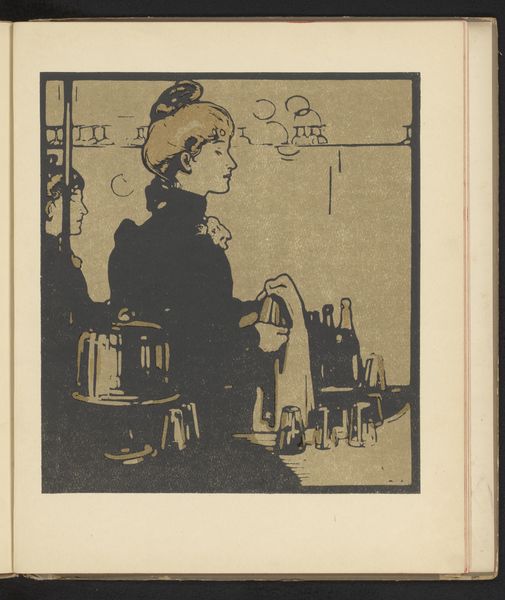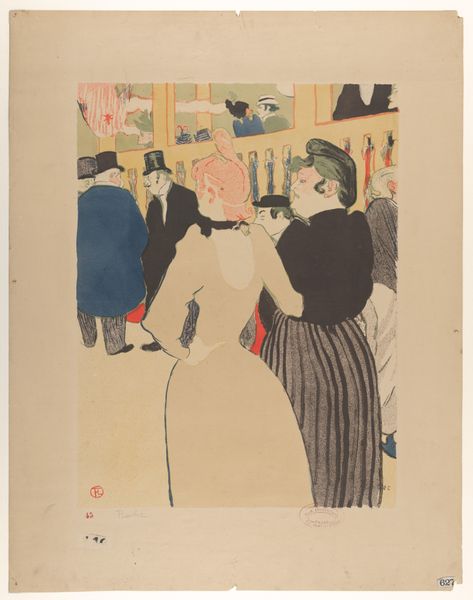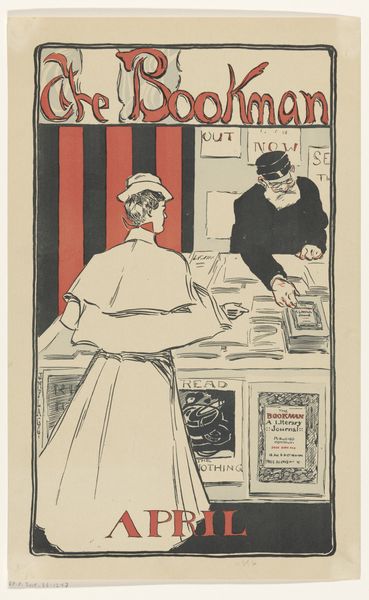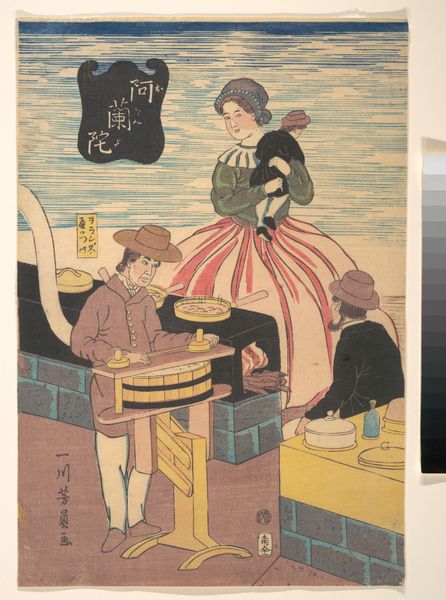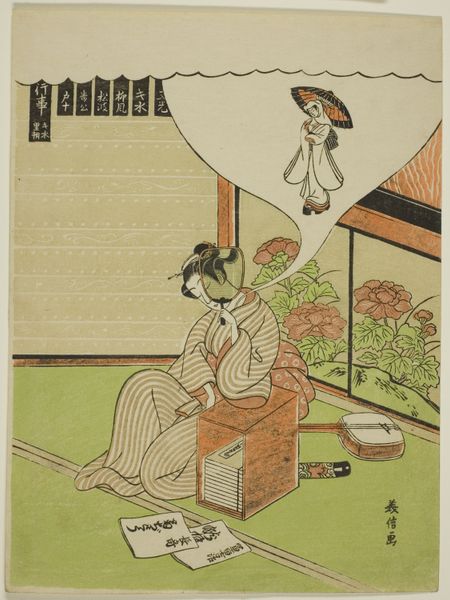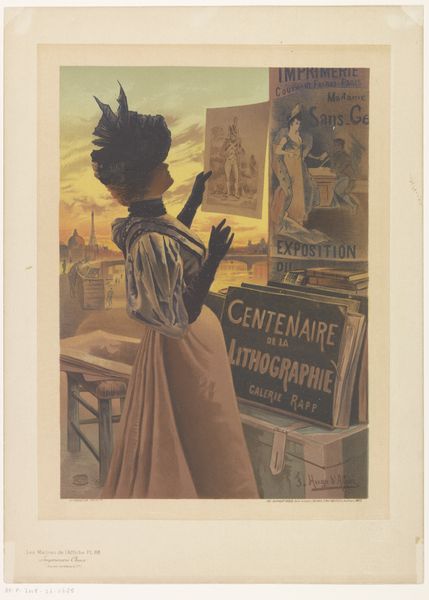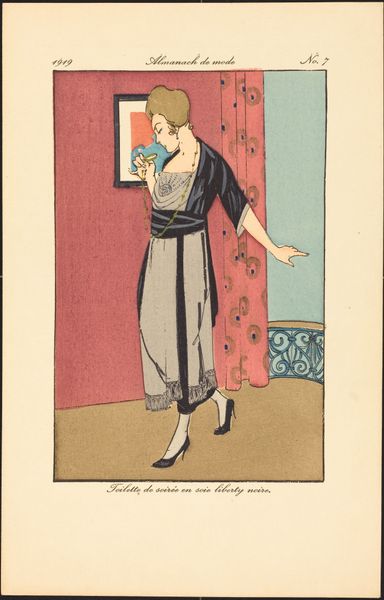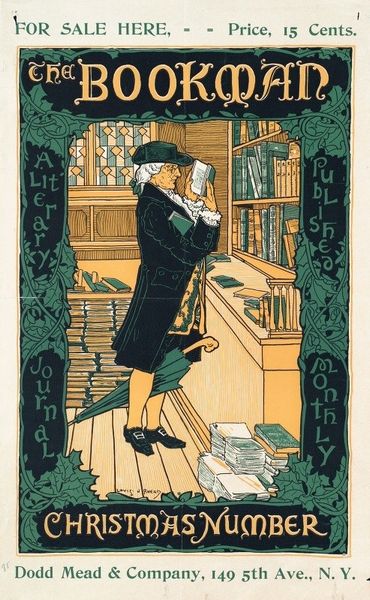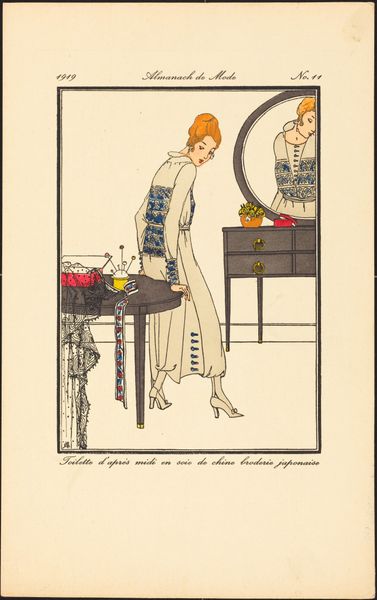
lithograph, print, etching, poster
#
art-nouveau
#
lithograph
# print
#
etching
#
figuration
#
genre-painting
#
poster
Dimensions: width 695 mm, width 510 mm
Copyright: Rijks Museum: Open Domain
Editor: This lithograph, "Woman with a Long Coat Examining Prints," from 1897 by Theo van Rysselberghe, feels very much of its time, very Belle Époque. I'm drawn to how it seems to function as both artwork and advertisement. How do you interpret its role in the cultural landscape of the period? Curator: Good observation. It's key to understand this poster not just as art but as a sophisticated tool within the burgeoning art market of the late 19th century. Consider the address emblazoned across the bottom: this isn't simply art for art's sake. What does the poster’s depiction of a well-dressed woman suggest about the target audience for prints and framing services at the time? Editor: Well, the woman seems wealthy, fashionable. So, perhaps these prints were marketed to the upper middle class, eager to demonstrate their taste and culture? Curator: Exactly. Think about the "art for the people" movement and the simultaneous rise of consumer culture. These posters made art accessible, bringing it into the streets. The Art Nouveau style itself, with its flowing lines and stylized figures, served as an aspirational lifestyle brand. The act of looking – the woman studying prints – it is very deliberately placed within a retail location and suggests consumerism of art, and an increased attention to curation, collecting and investing in art. Editor: It’s interesting how something beautiful can also be such a clear advertisement, blurring the lines between art and commerce. I see it differently now. Curator: And that’s the exciting part of studying art history, isn't it? Revealing these hidden contexts and social functions allows us to see how art truly interacts with society. I learned a lot revisiting that tension here.
Comments
No comments
Be the first to comment and join the conversation on the ultimate creative platform.
